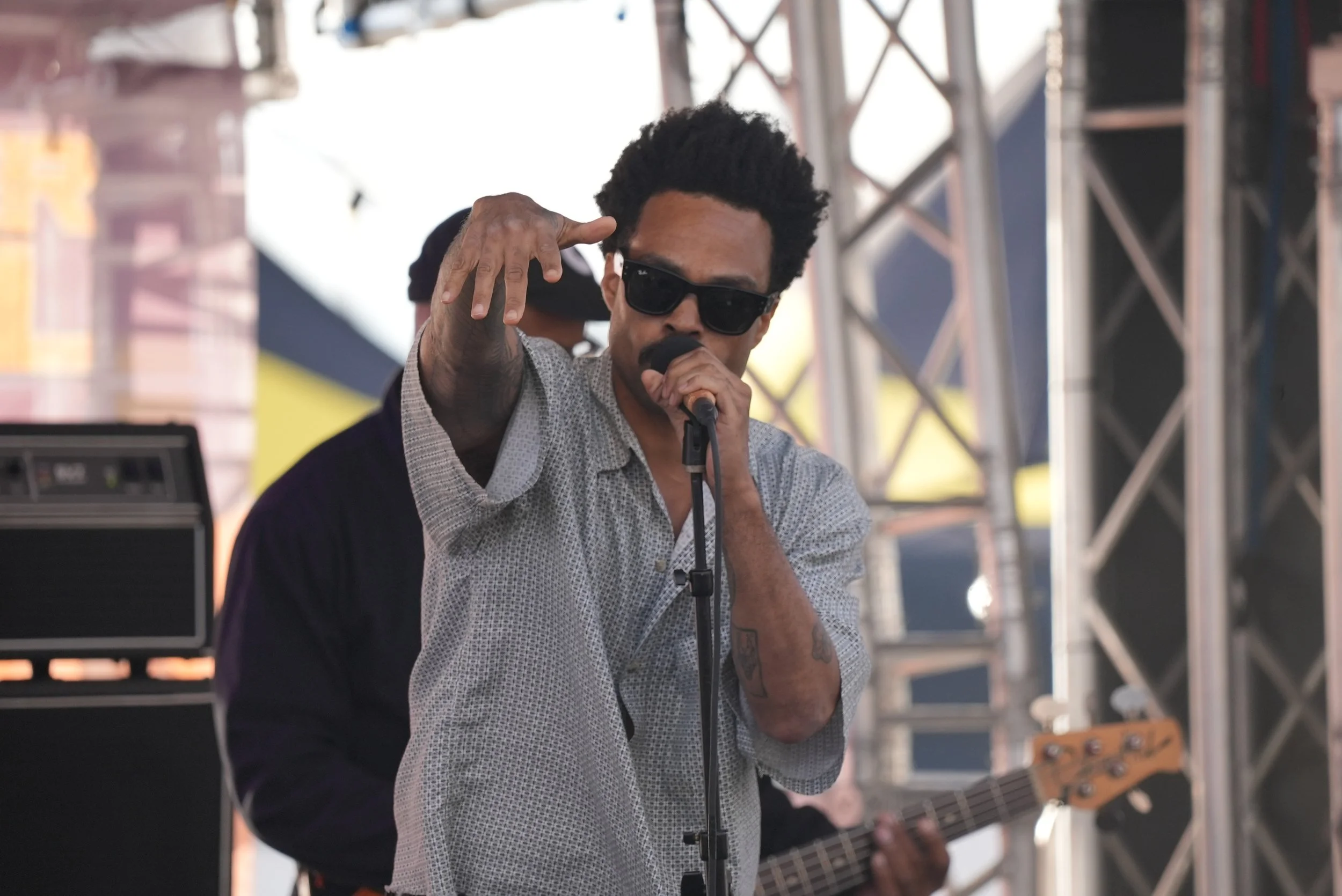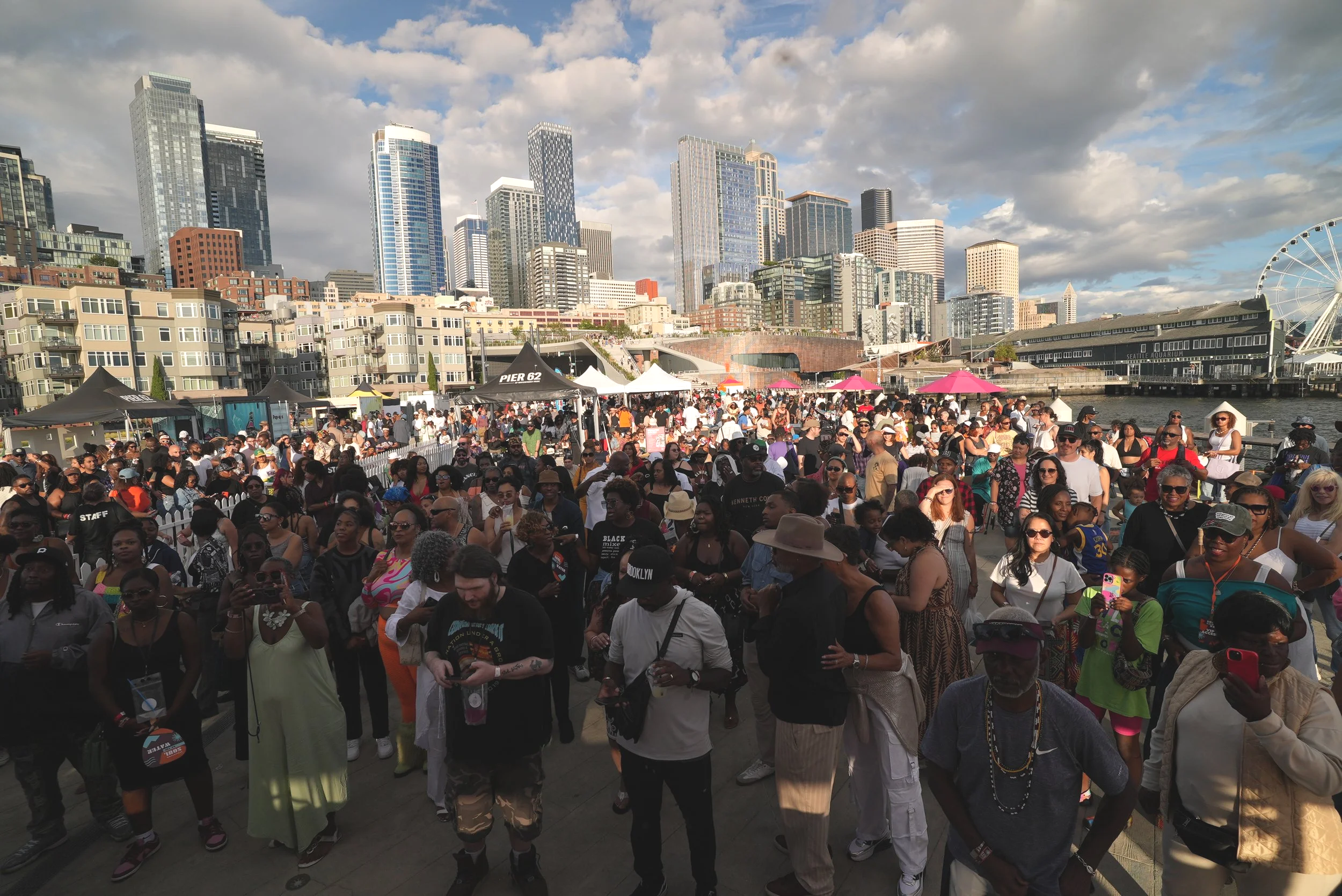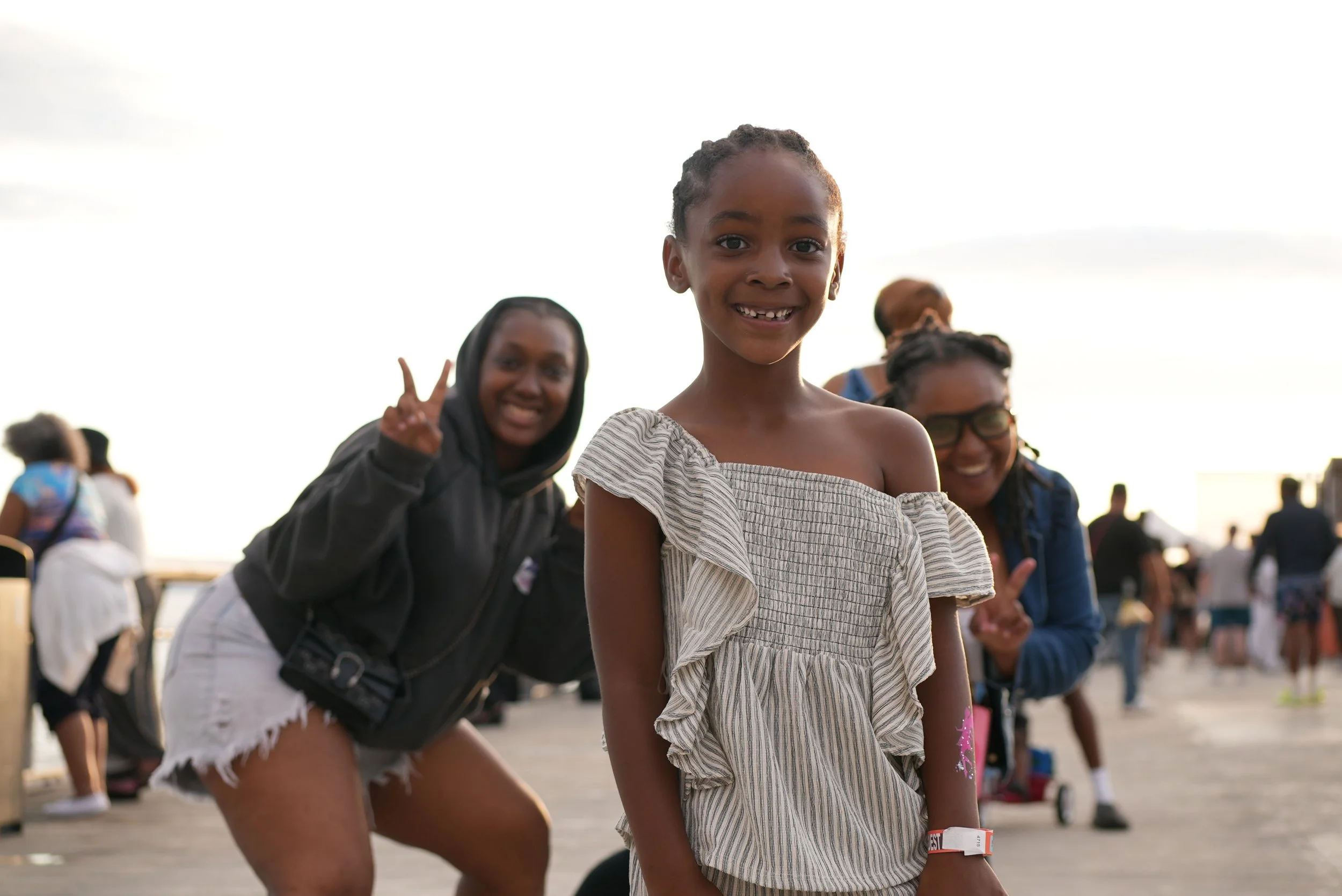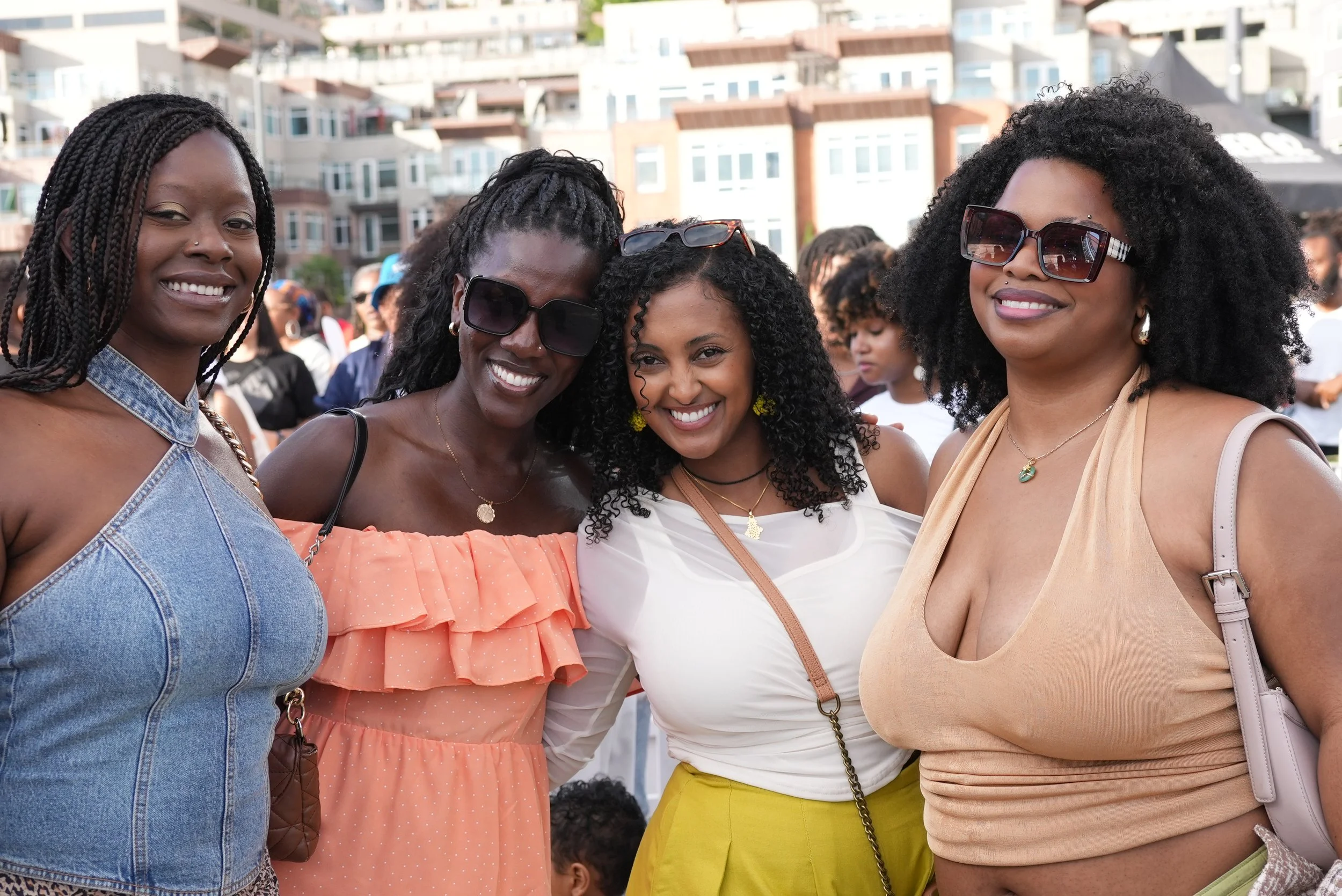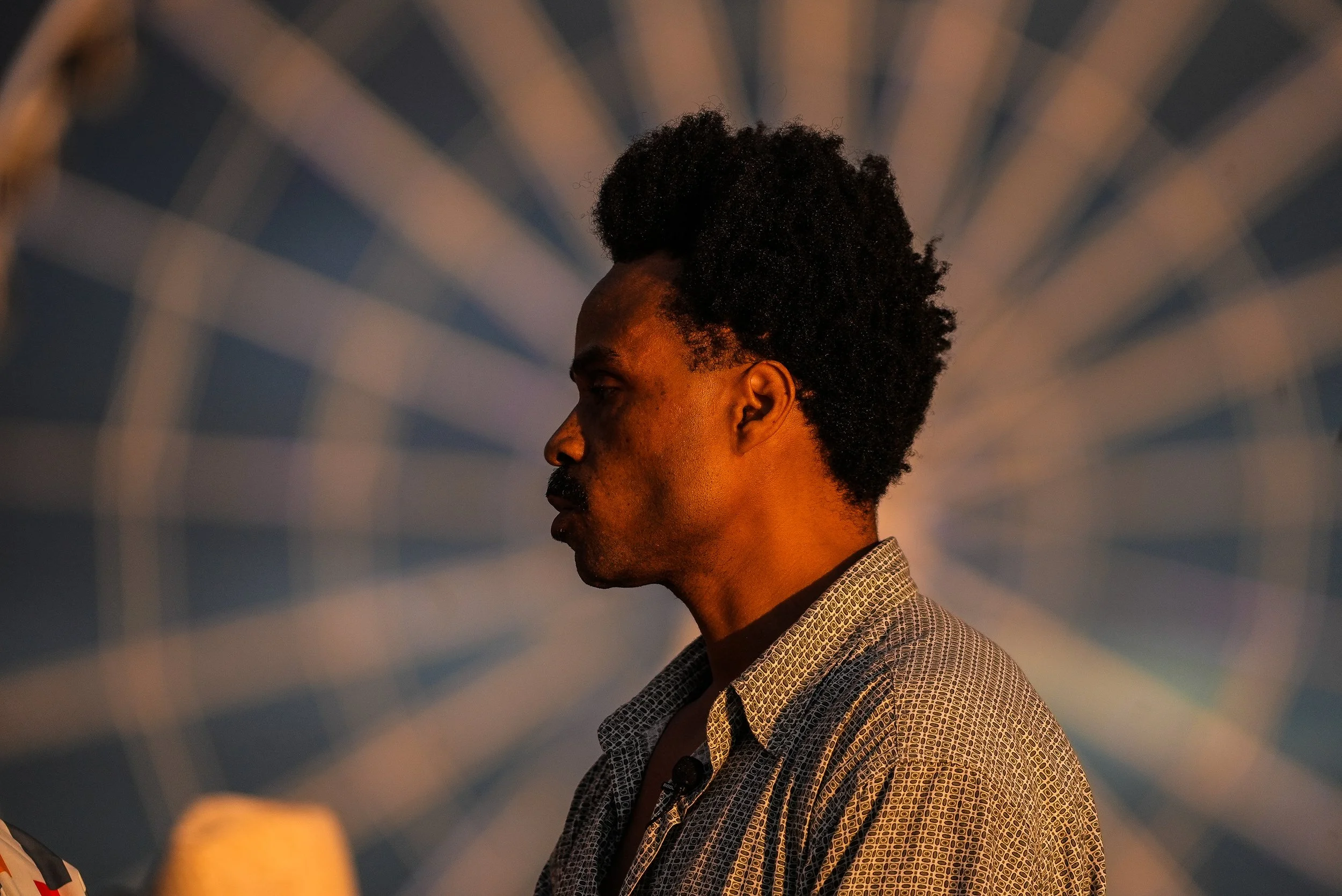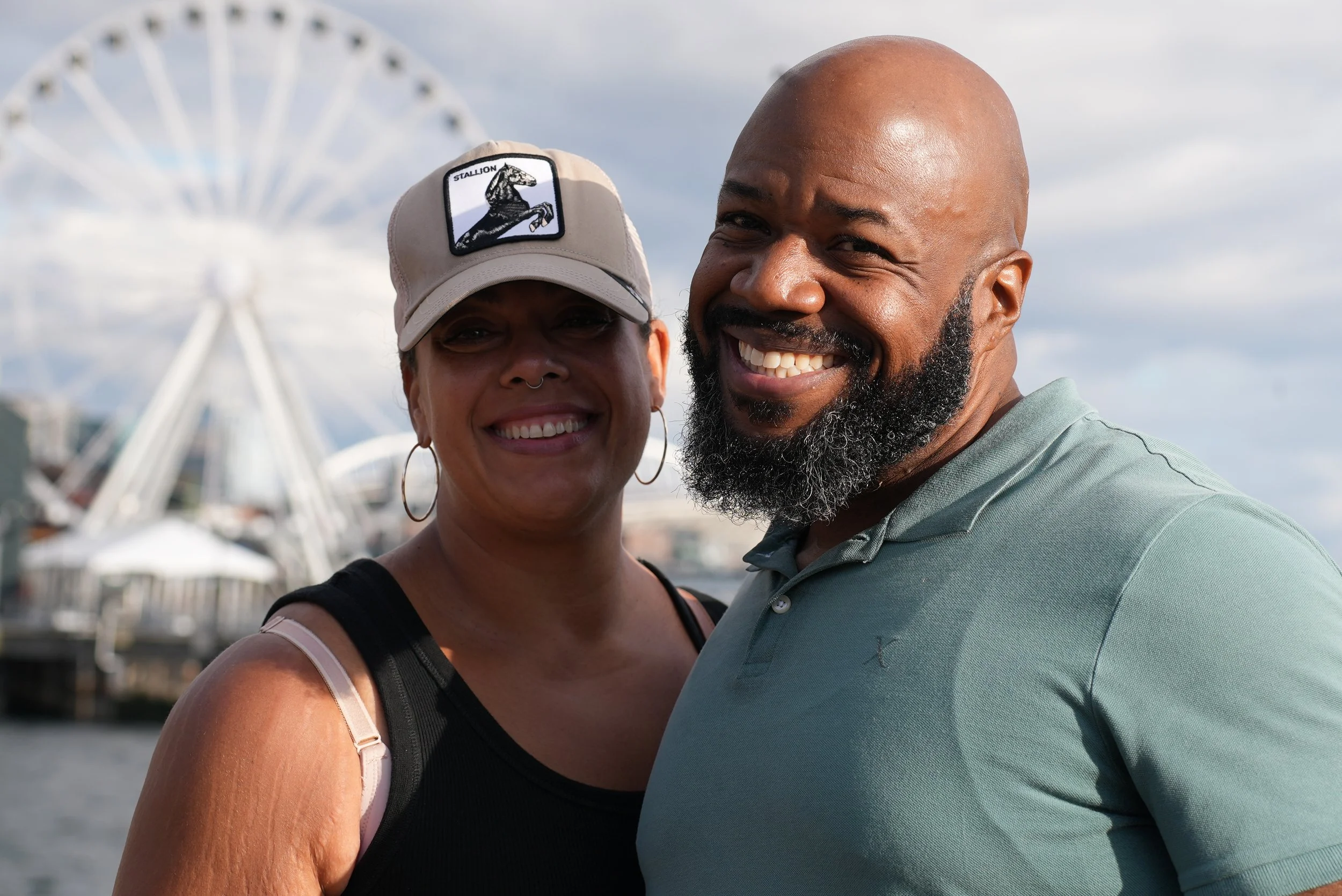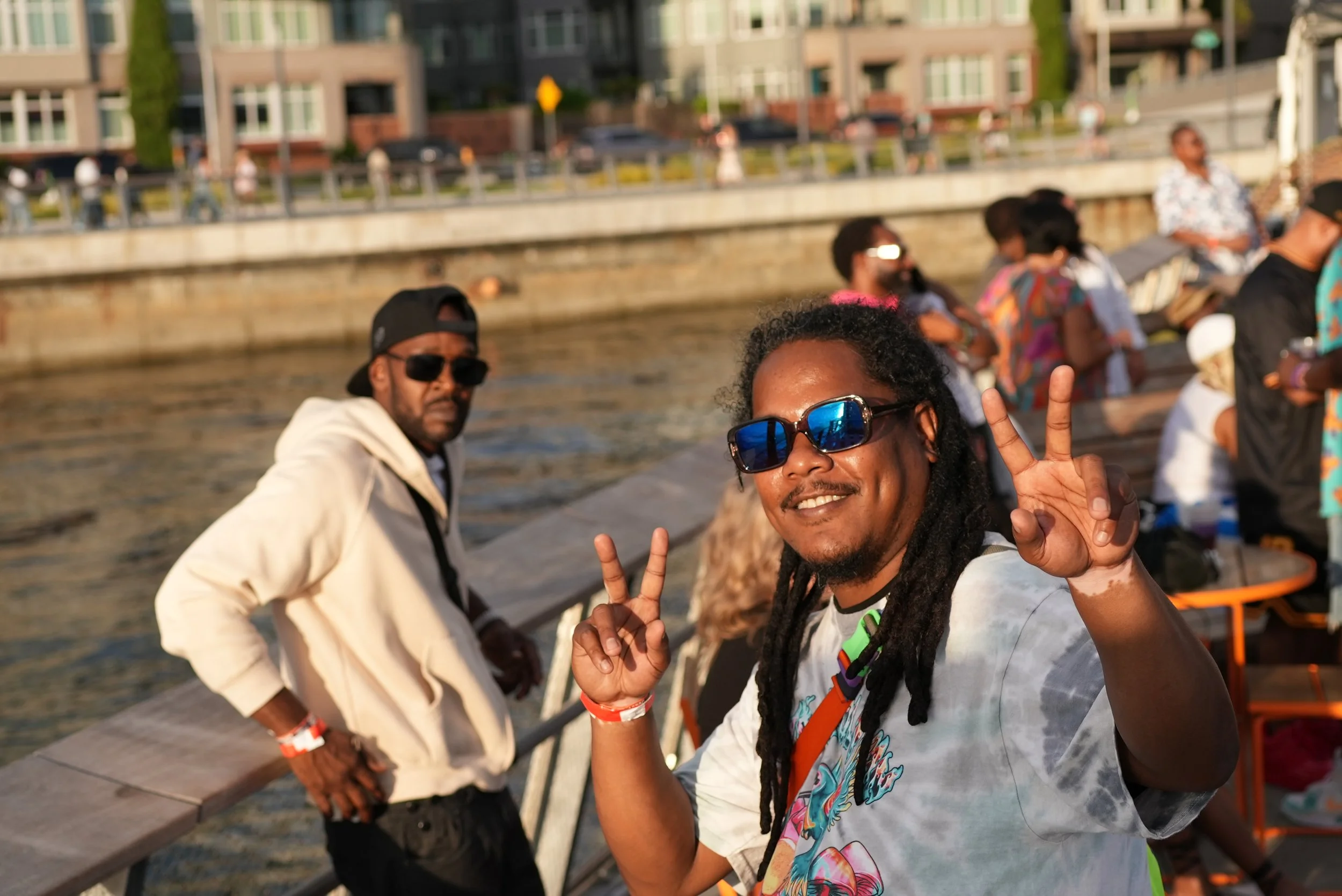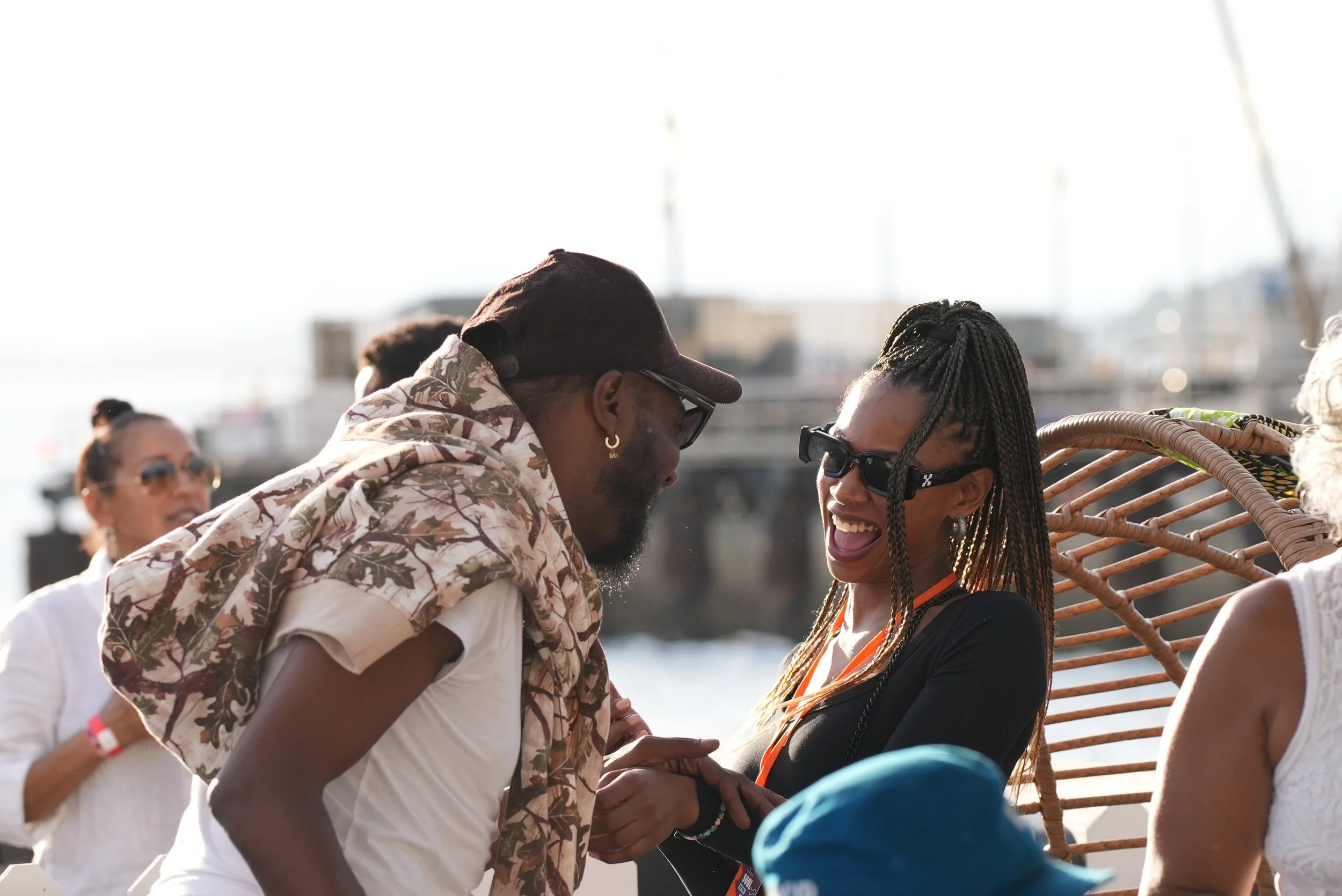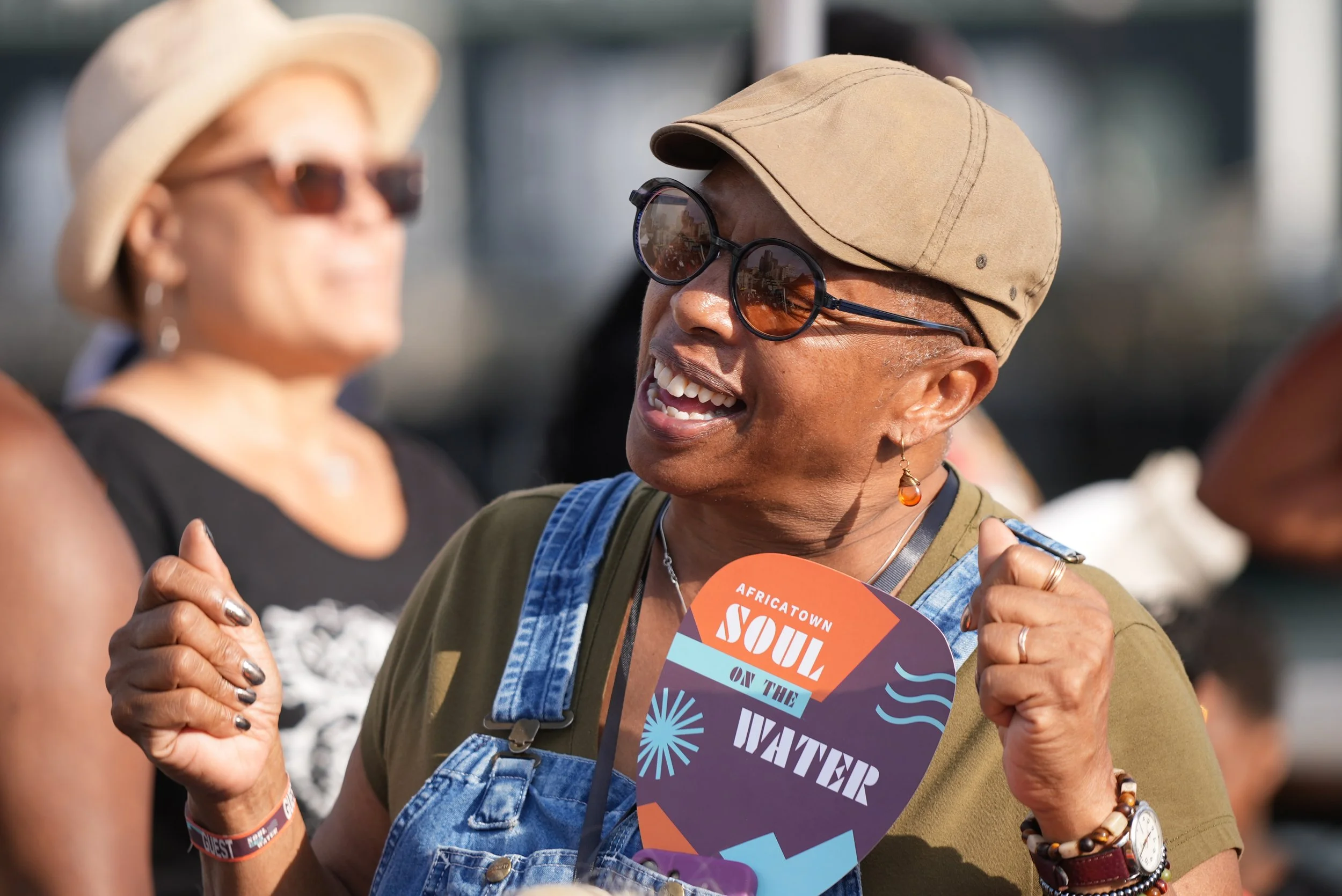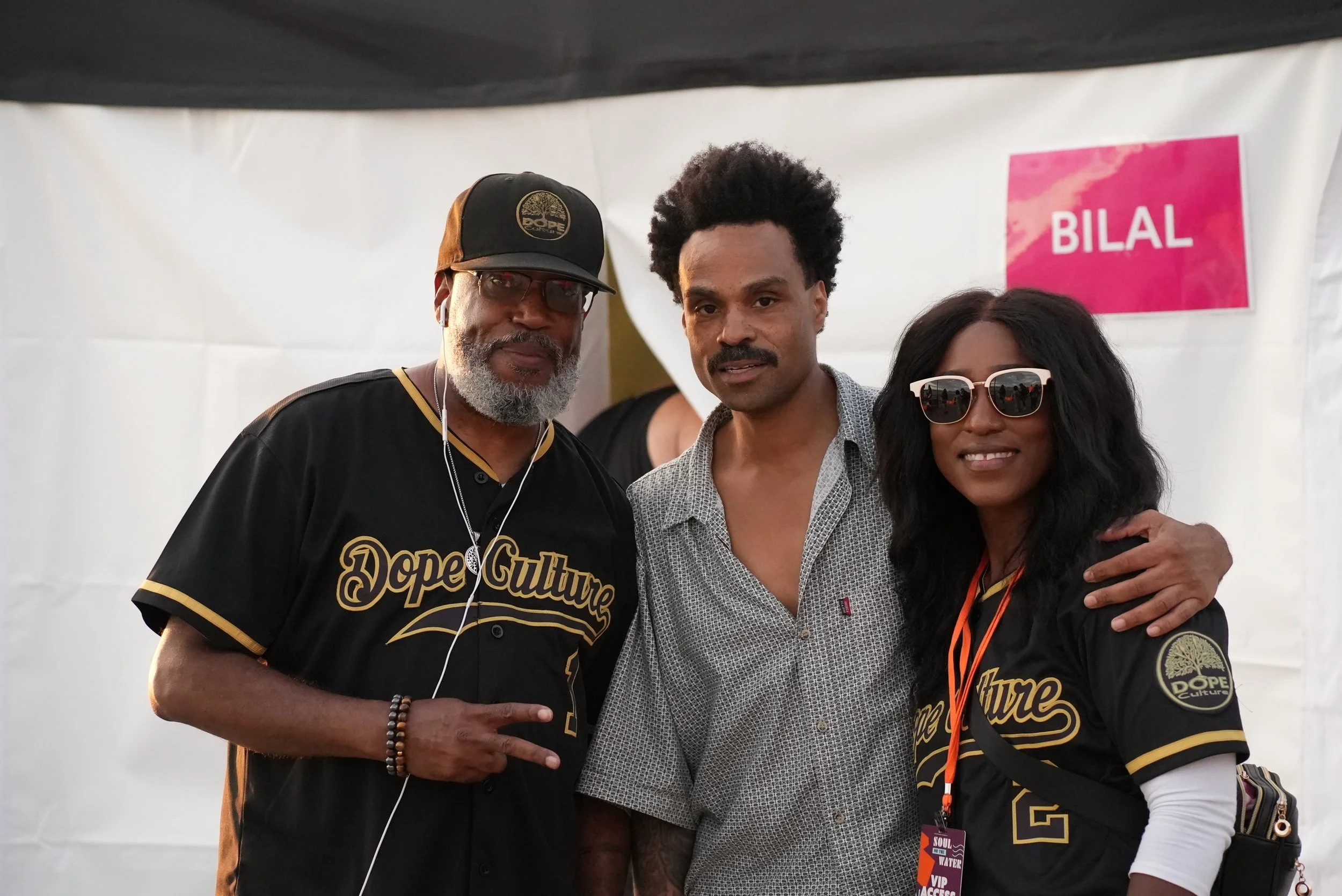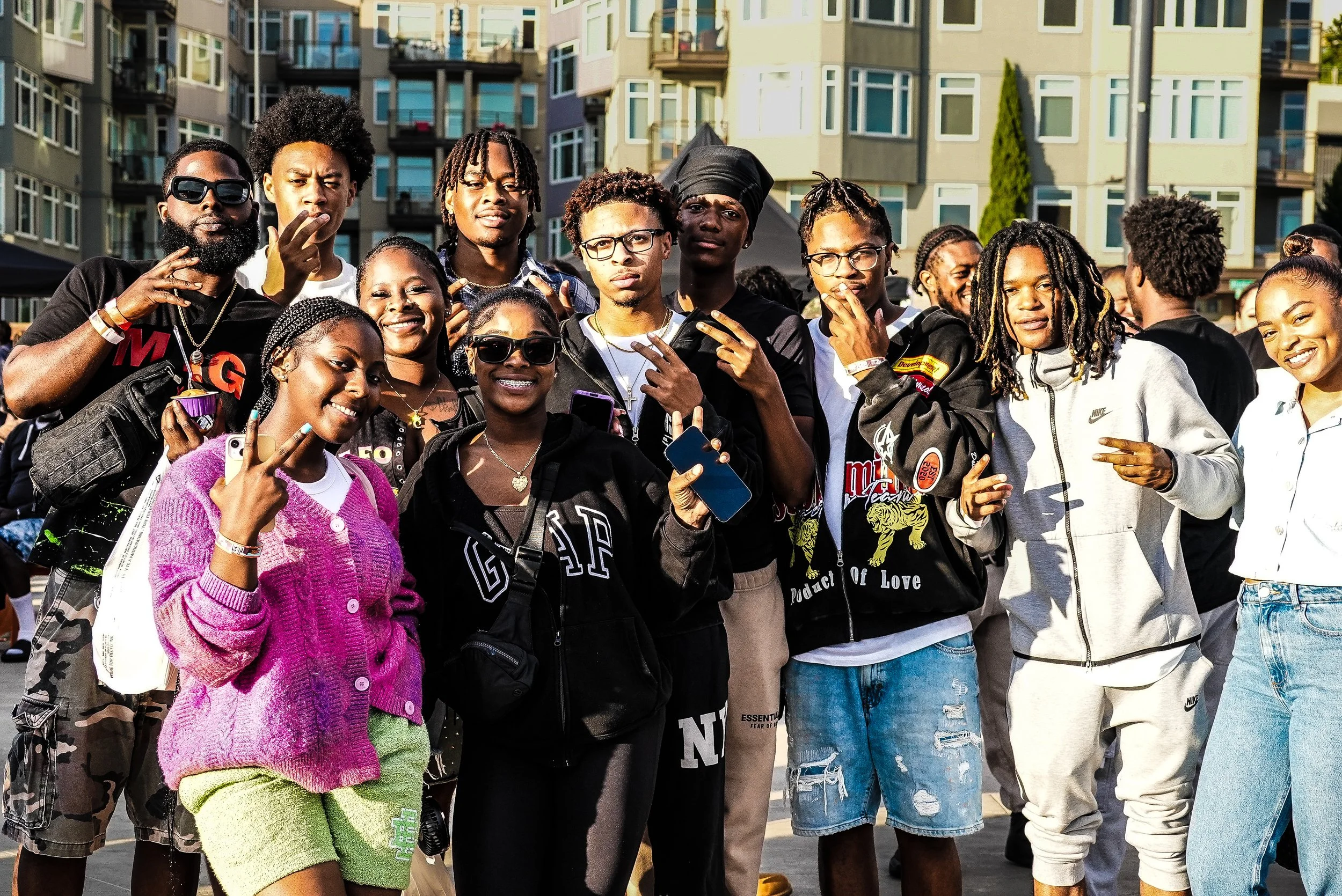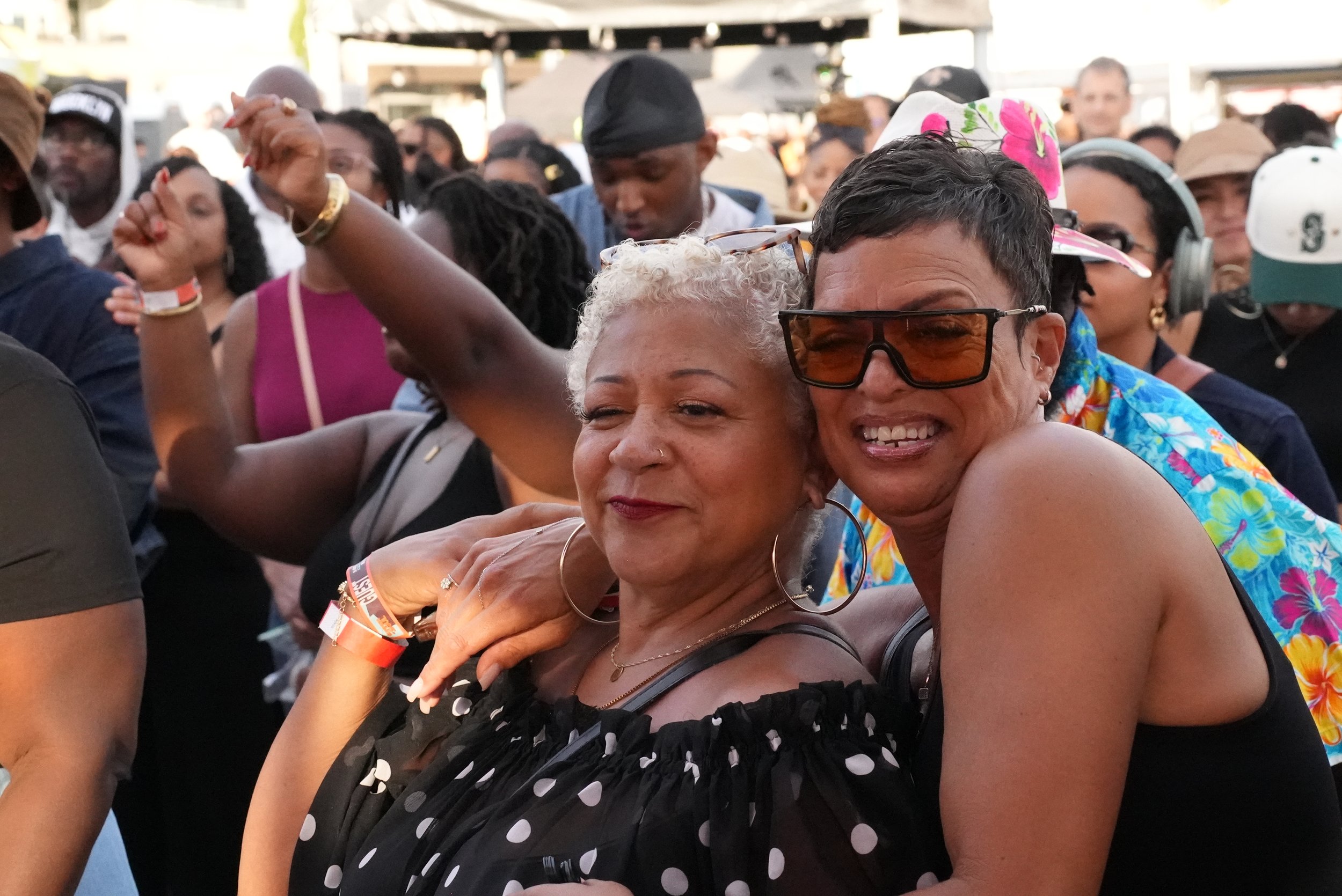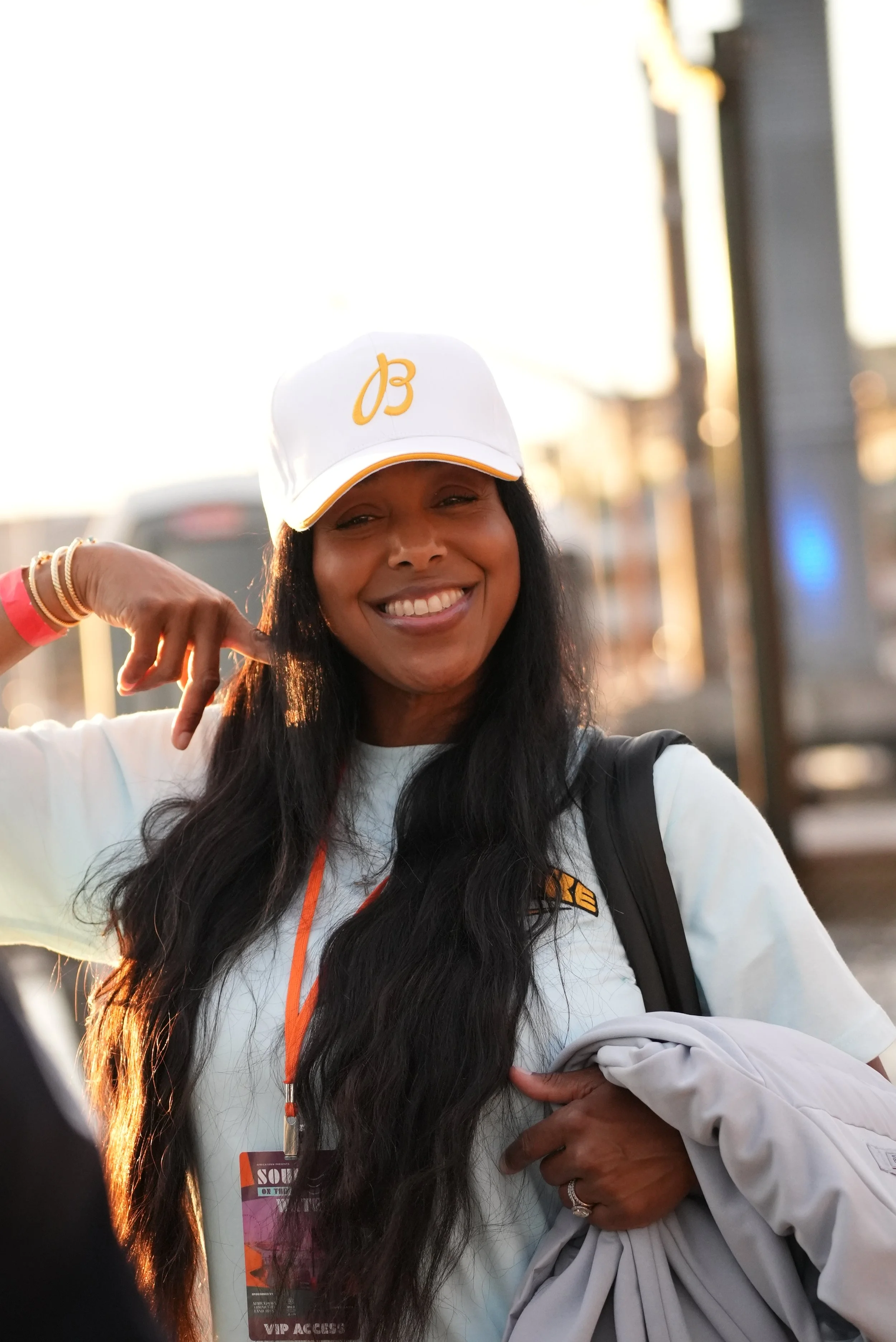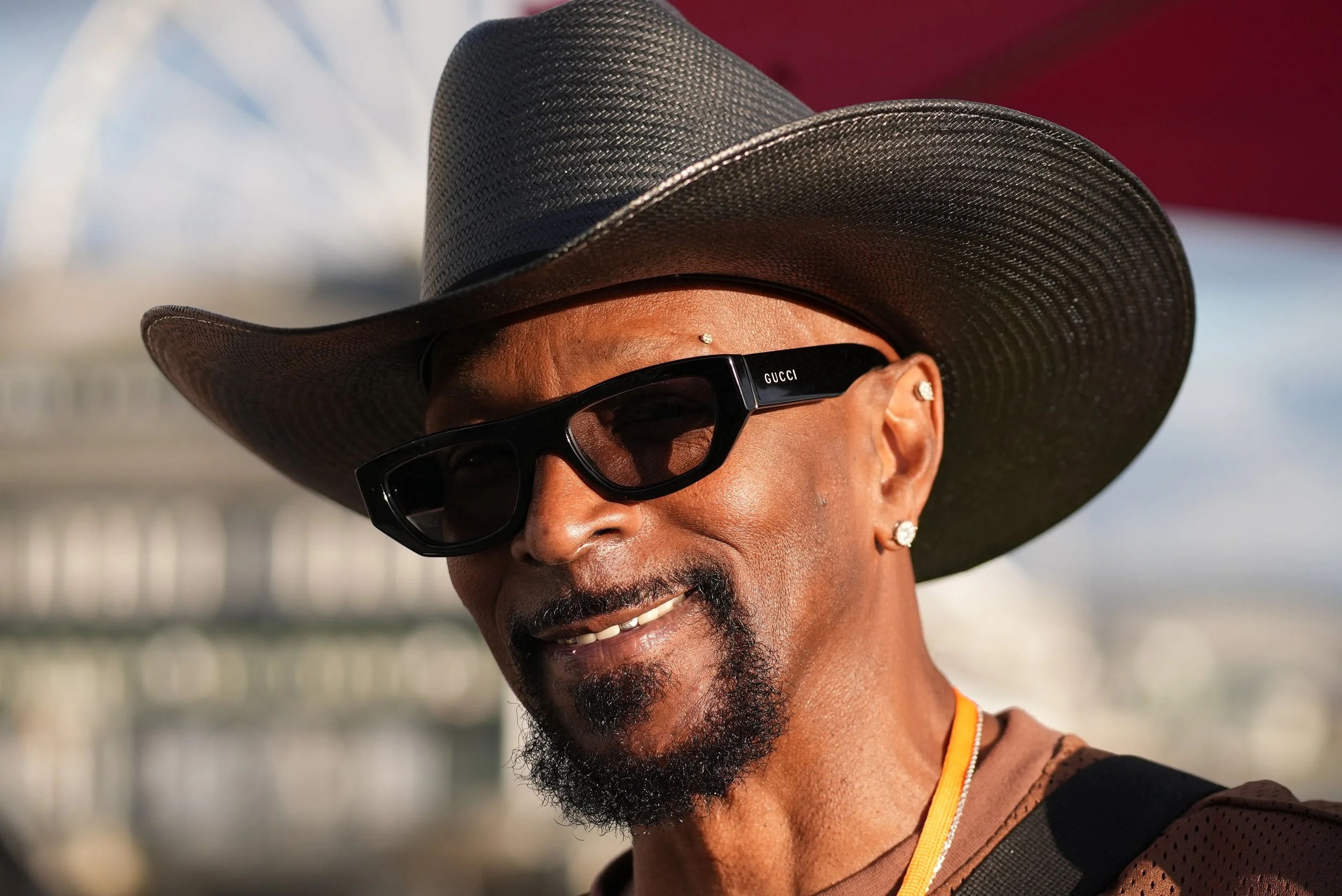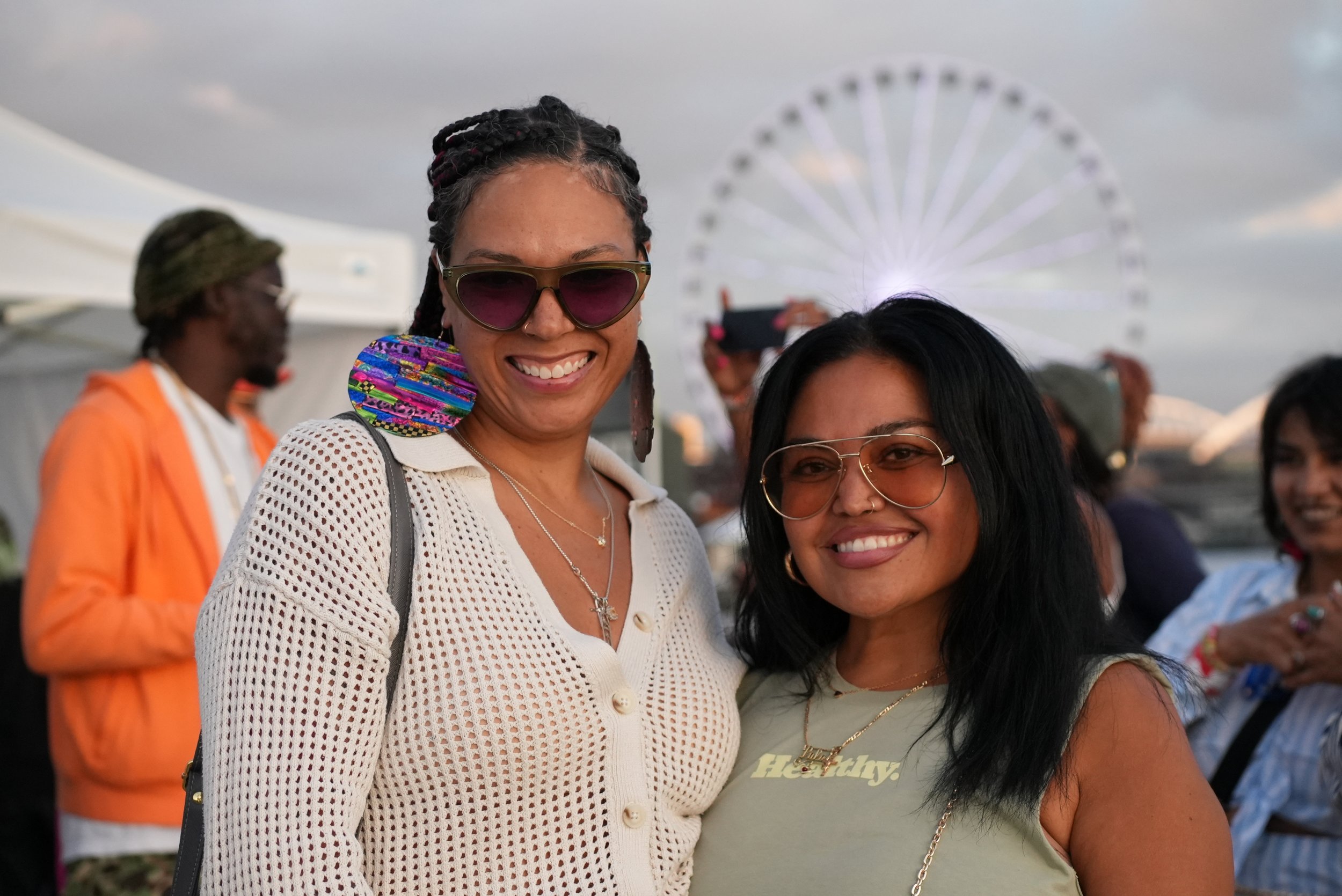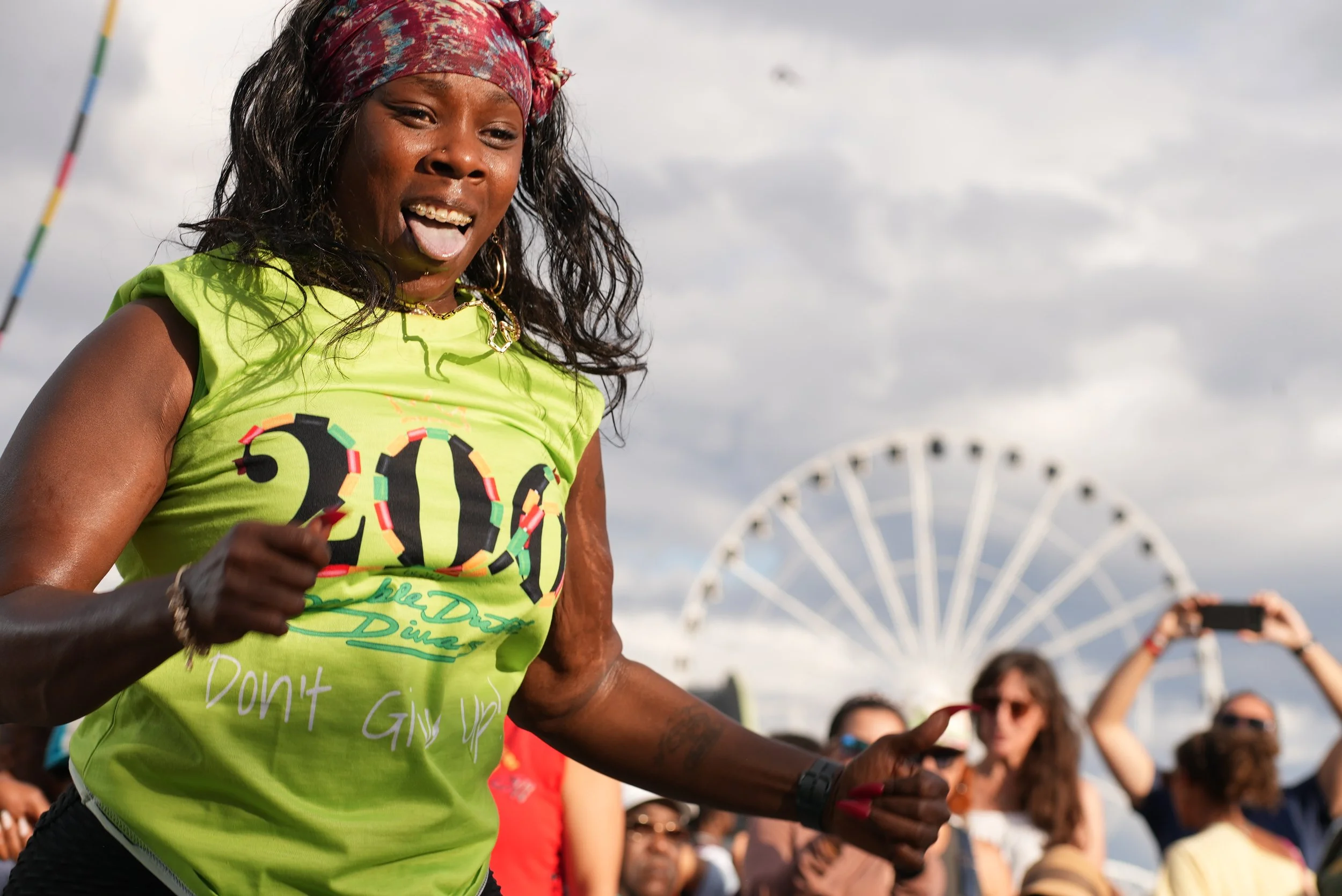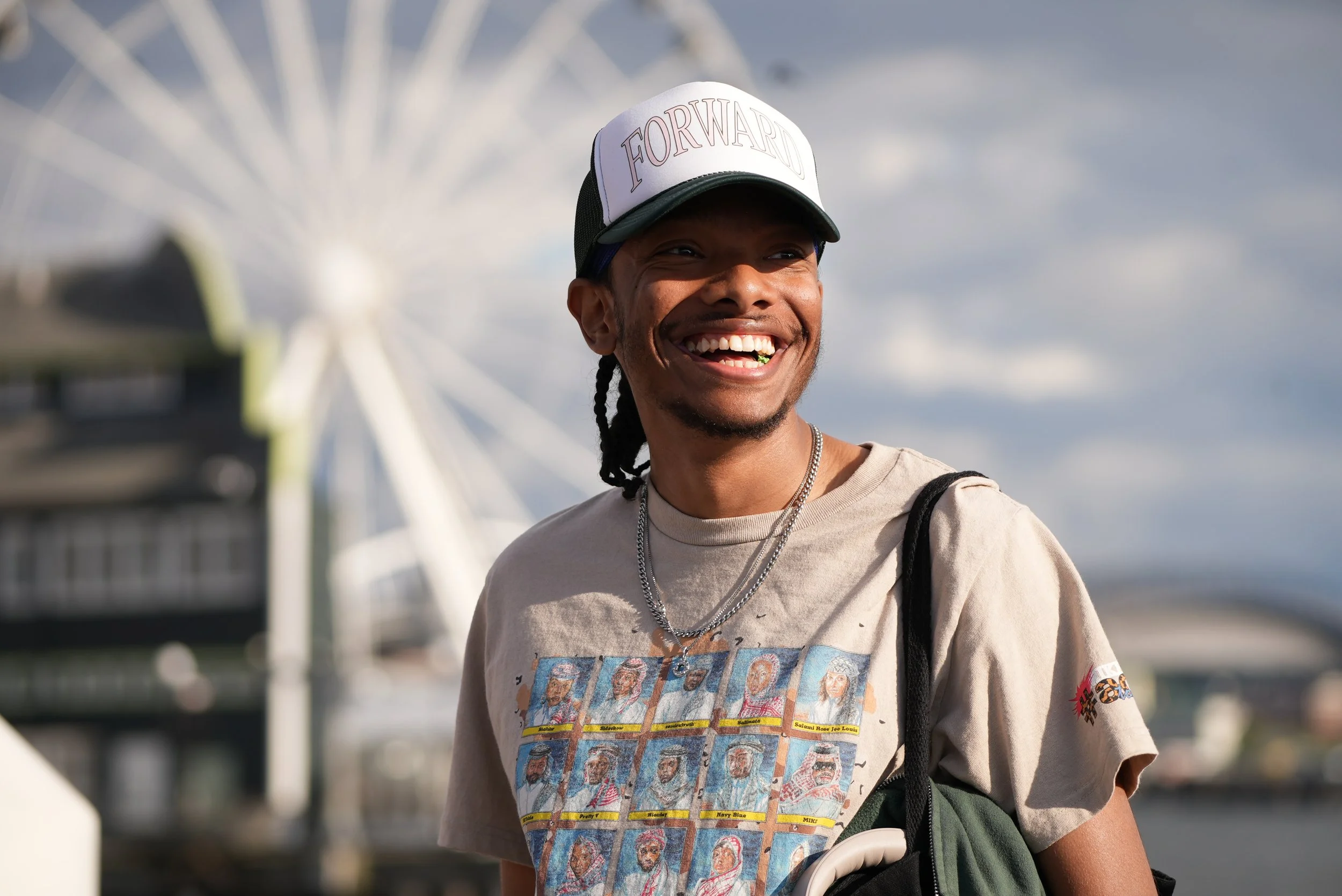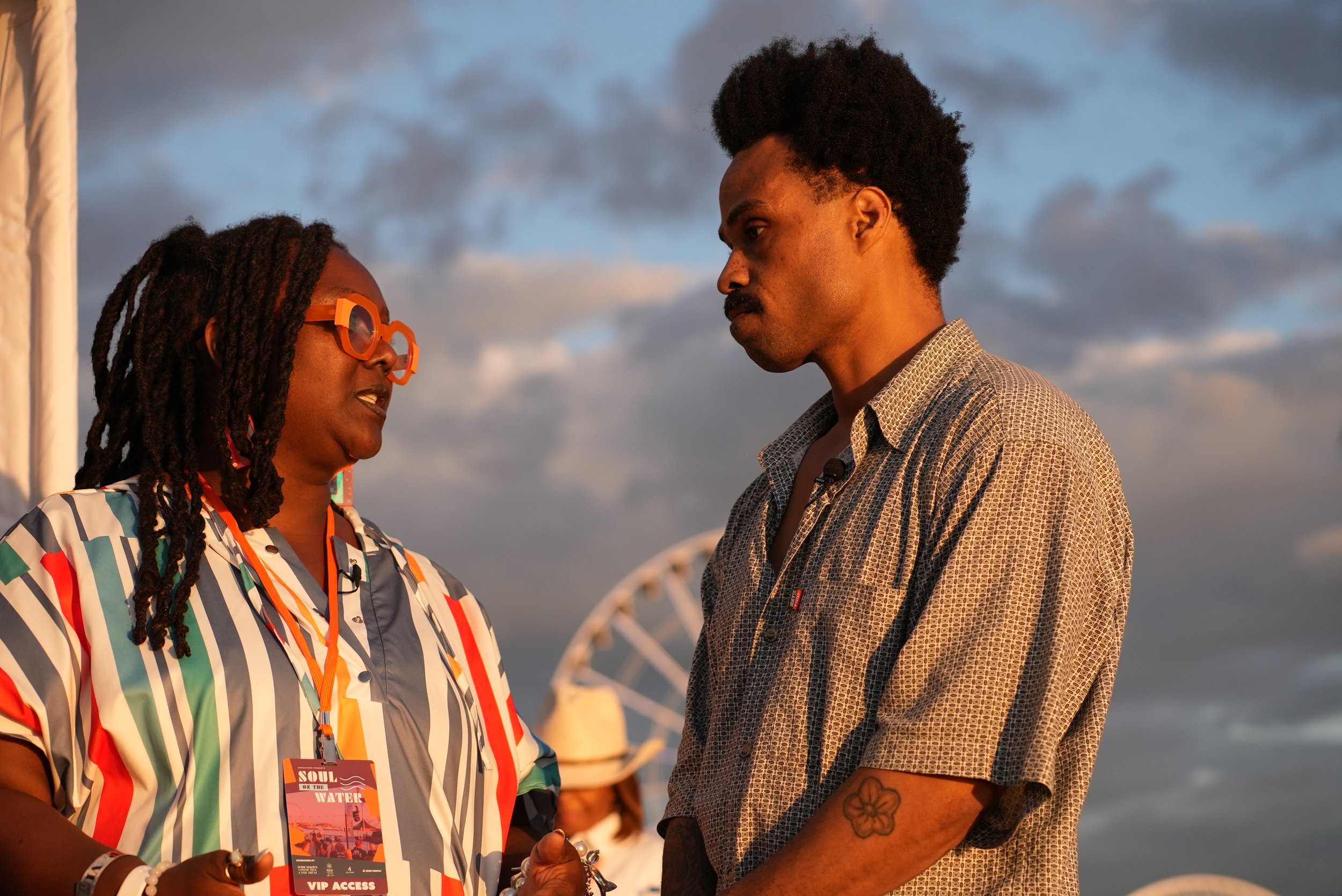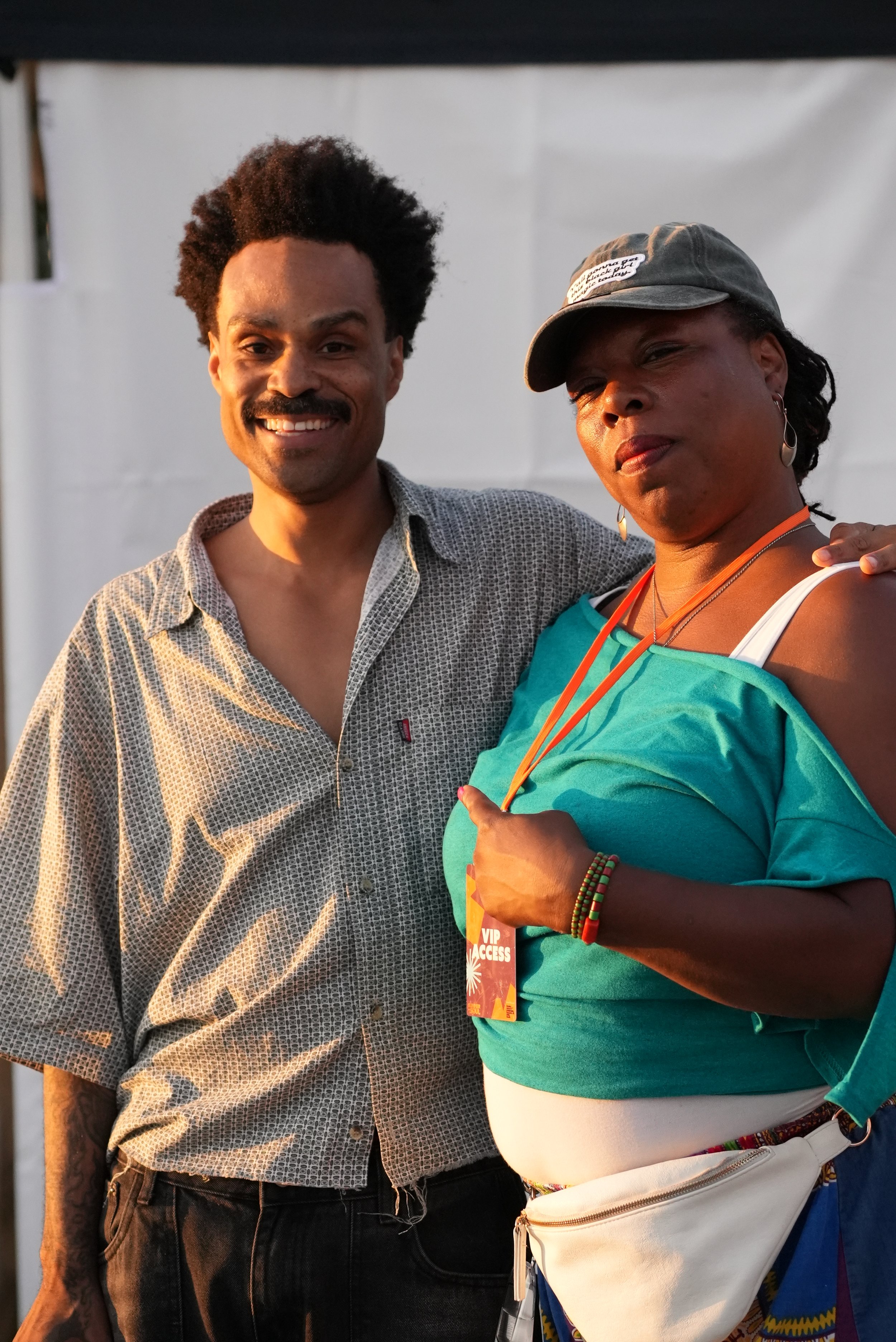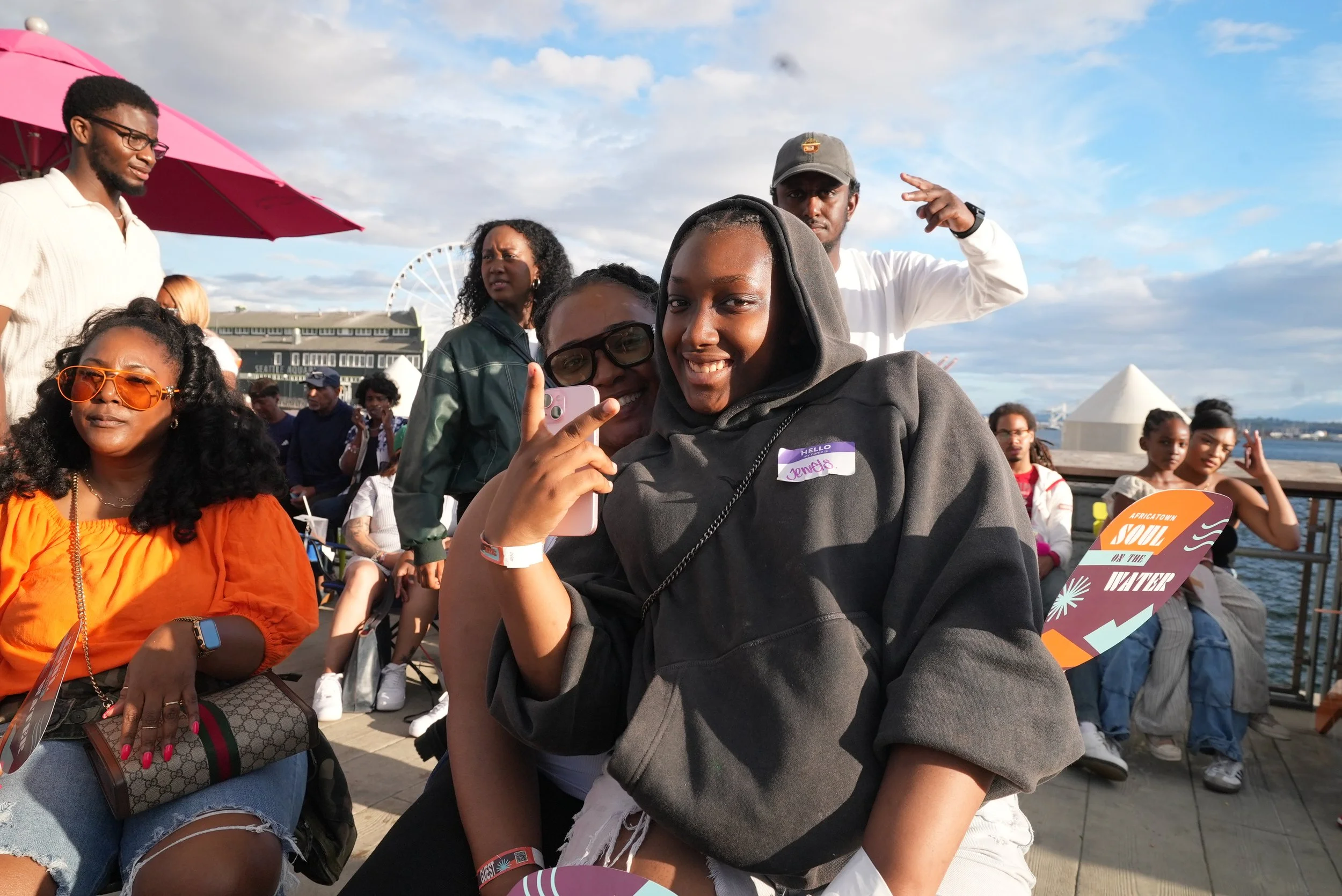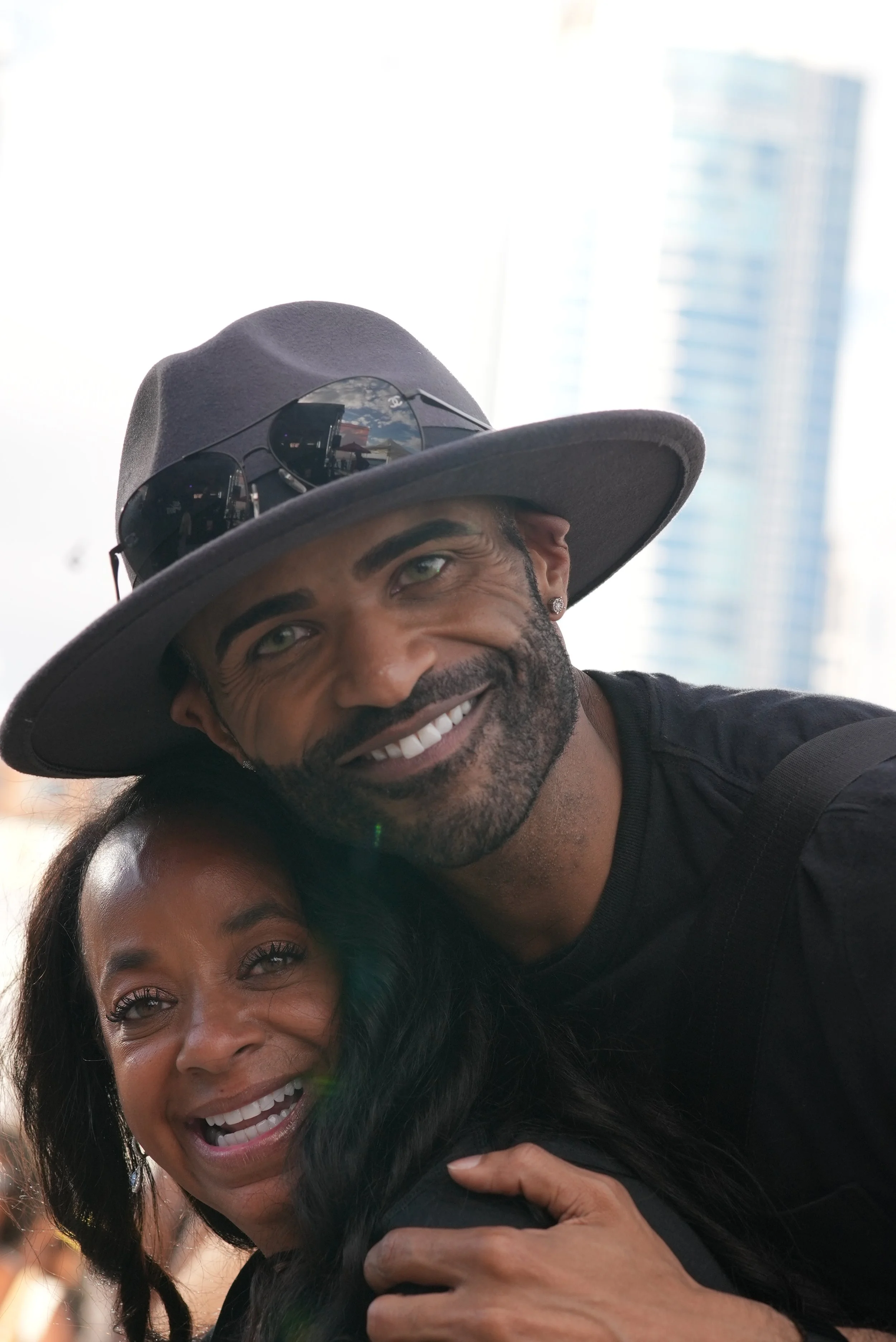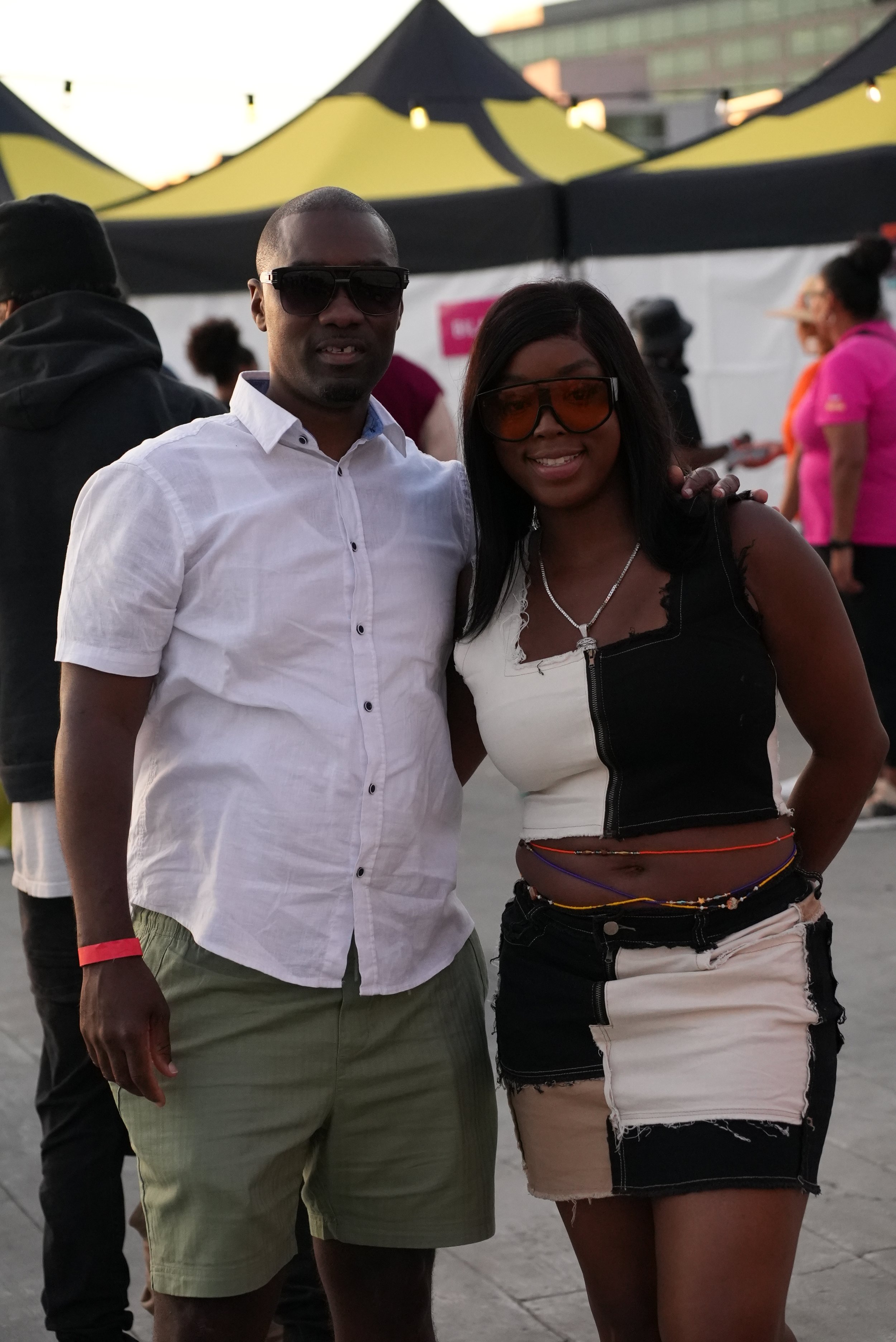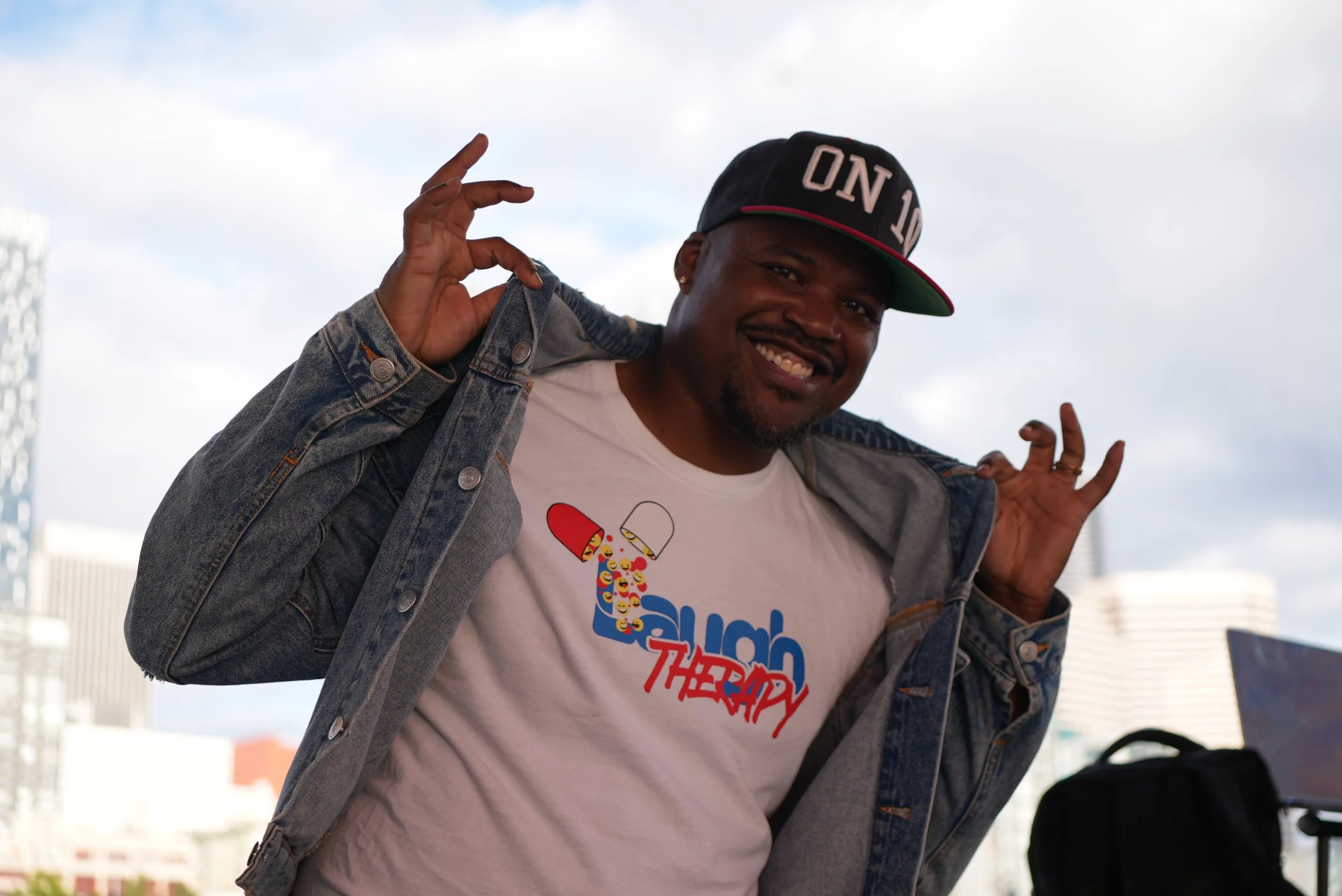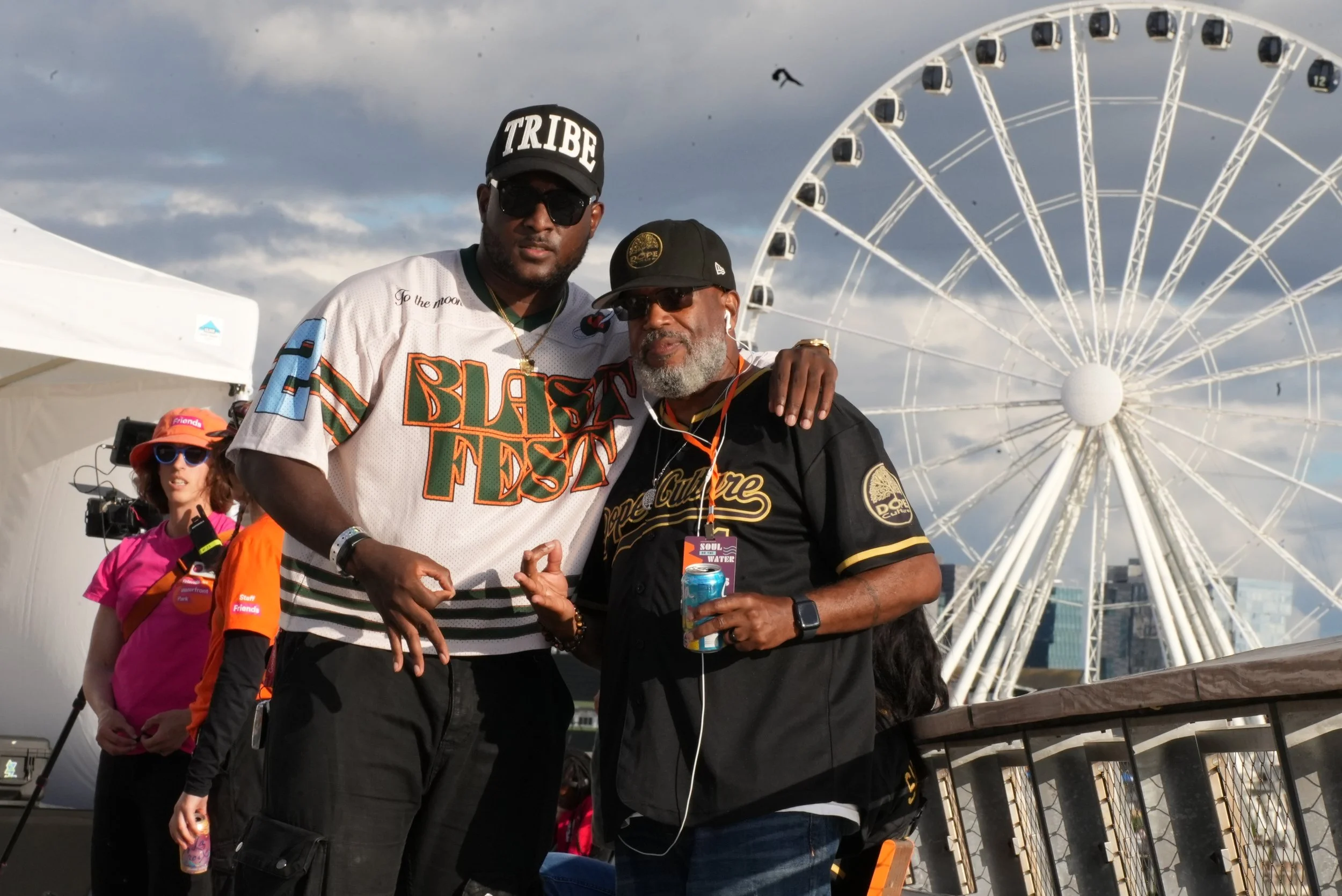Black Joy on the Waterfront: "Soul on the Water" Returns to Pier 62
Neo-Soul artist Bilal headlined this years “Soul On The Water” at Seattle’s Pier 62. (Photo: @ProofNThePlay)
All Photos: @ProofNThePlay
Seattle's Pier 62 transformed into a vibrant hub of Black culture and community last Saturday for the "Soul on the Water" festival, a key event within the "Summer of Soul" series hosted by the Africatown Community Land Trust. This free, all-ages event brought together generations of Black people from Seattle and beyond, celebrating their presence, resilience, and joy on the city's waterfront.
A Homecoming on the Waterfront
For many, "Soul on the Water" felt like a long-awaited homecoming. Jacqueline Smith Armstrong, Chair of the Africatown Community Land Trust, emphasized the event's ultimate vision: "to make sure that black people are not erased, that we are a big part of Seattle." The event served as a potent reminder that Black folks have been in Seattle for over 140 years, and their culture is a vital part of the city's fabric.
Attendees, some traveling from as far as Tacoma, Everett, Kent, Puyallup, and Federal Way, came back to reconnect with their roots. As Jacqueline Smith Armstrong noted, "people who have been displaced due to gentrification that no longer live in Seattle Central District... have come back just to be reminded of their roots. And that's the key goal today: we will never be forgotten. We're still here. We'll always be here, and people who have been misplaced are always welcome home."
Ashley Moore, a community member, echoed this sentiment, stating, "It feels great because it feels like we're actually included and a part of the city where there are so many spaces and places that we're excluded. So, it's nice to have this opportunity to come and enjoy." Jacque Julien, a creative director, also described the feeling as a "homecoming," noting the therapeutic aspect of being on the water and the intentional design of the space with the Black community in mind.
Lex Scope, a Seattle Film Commissioner and founder of Scope Screenings, remarked on the visual impact of the event, stating, "I've never seen the pier this melanated in my entire life... if you came to Seattle right now and you weren't from Seattle, you would be mind blown with the amount of melanin and color you see on the pier." This visibility and presence on the waterfront, a space not traditionally associated with Black community events, was a powerful statement.
More Than Just Music: Community, Culture, and Commerce
Beyond the captivating music and performances, "Soul on the Water" served as a multifaceted platform. K. Wyking Garrett, President and CEO of Africatown Community Land Trust, highlighted the key goals: "highlighting our culture, circulating commerce, bringing tourism into our community, bringing our community down to the tourism." Local Black-owned businesses and food vendors played a crucial role in creating the event's unique atmosphere, ensuring that attendees were "not only filled spiritually but also by good soul food," as Jacqueline Smith Armstrong eloquently put it, while also providing "great opportunities for vendors also to have an economic impact."
Devona Roy, a visual artist, hosted a free paint party, allowing people of all ages to engage with art and celebrate both the visual and performing arts. She expressed her joy at being more involved this year: "I not only got to host, but I actually got to be a part of it, a part of the community this time, which is so much better." She also highlighted the intergenerational aspect of the painting, seeing "kids as young as five and grandparents out here painting."
The event fostered a sense of belonging and inclusivity. Joy Shigaki, President and CEO of Friends of Waterfront Park, emphasized the partnership's mission: "Having ACLT, the Central District feeling welcome at the waterfront is a big part of the nod of our work with Friends and our partnership with the community. You can build a beautiful place but if you don't have people if you don't have community if you don't have culture and a real signal of welcome to something new, then it’s just a place." She added that Friends measures success by whether different communities "feel a sense of connection to place" and "a sense of welcome and belonging in the space."
The Essence of Black Joy
A recurring theme throughout the interviews was the concept of "Black Joy." For many, it was the real feeling of happiness and liberation that permeated the event.
Jacqueline Smith Armstrong described Black joy as "exactly this... Eating good food, listening to good music... Laughing, partying, hugging one another, smiles on our faces, and letting the wind hit in our face." She added, "black joy is something that no one can experience unless you're Black... We've gone through so many trials and tribulations, but we're like seeds. We're still here. We weren't buried."
Ashley Moore simply defined it as "knowing that we all can live to see another day and smile and be happy about something personally." Lex Scope added, "It's the sun bouncing off our skin. It's smiling. It's just having a good time. We're not worried about all the negative things that are going on in the world... Black joy is just taking some time just to be happy, to be in the Sun."
K. Wyking Garrett observed, "Black joy is what you're seeing right now. The music, the food, the family, right? The smile, the dancing, the double dutch, right? All of that is black joy. It's an inspiration. It's the resilience that even under the conditions of duress, we're able to tap into that space in ourselves that's really divine and bring that forward as joy, not just for ourselves, but for so many others who love our culture."
Jacque Julien passionately stated, "Black joy, it's it's liberation. Black joy is fully showing up, being self... without holding anything. I'm not taking inventory of who's watching... It's just being in my body, showing up, maintaining, you know, being present... Black joy is healing. It's It's love. It's revolutionary. It's needed. It's necessary.
Boe Blast, comedian and co-host, succinctly defined it as "peace," and described the overall vibe of "Soul on the Water" as "radiant." Traci Green, a community member, found an "overwhelming sense of joy" at her first "Soul on the Water" and described the atmosphere as "free," "calm," and "inviting," with an "infectious happiness."
Brione Scott, mother of a performer, emphasized the importance of these spaces: "Events like this mean a lot to me. I love it when our community comes together, laughs, has a good time, and just enjoys each other... These spaces are important." She concluded, "Black joy is just us. We are... loving, joyous, helpful. So that's just Black joy to me.
Looking Ahead
Organizers and attendees alike expressed a desire for "Soul on the Water" to continue growing. Trae Holliday, host of the event, urged the community to "tap in" and support the event through volunteering, sponsorships, and spreading the word to ensure its sustainability. As Jacqueline Smith Armstrong affirmed, "Next year will be even bigger and better."
The "Summer of Soul" series aims to create "wonderful, beautiful black experiences," according to K. Wyking Garrett. It continues Seattle's rich legacy of Black cultural contributions, from jazz greats like Quincy Jones and Ray Charles to contemporary artists.
As Seattle's new Waterfront Park prepares for its grand opening on September 6th, events like "Soul on the Water" are crucial for welcoming all communities and ensuring that the space reflects the city's diverse population. The trust and collaboration built through partnerships like that with the Africatown Community Land Trust are key to creating a genuinely inclusive and welcoming waterfront for years to come.

